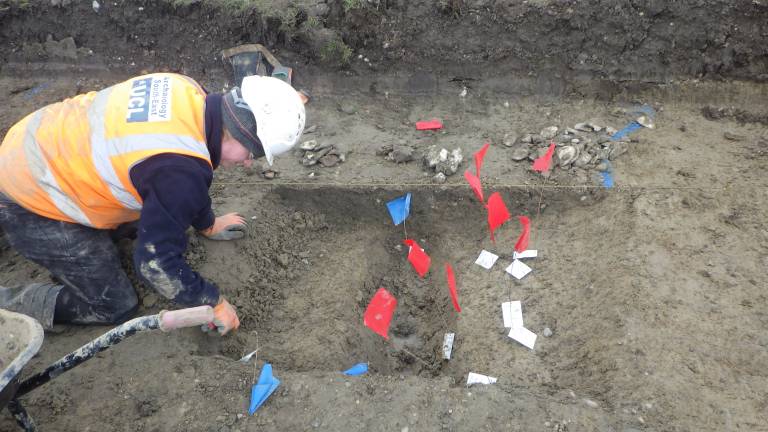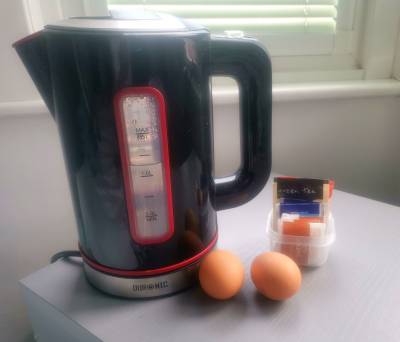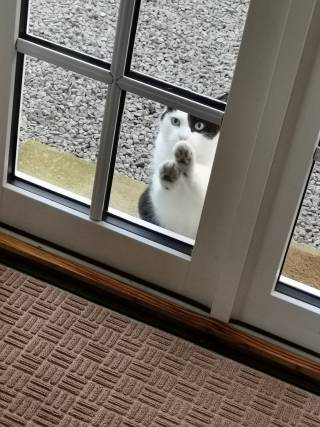IoA Placement 2020-21: Takeaways from Stay-aways
18 August 2021
Alex Allen is back with another blog post! This time he's taking a deep dive into archaeology on ‘stay-away’ - the intricacies of working and living away from home and how to thrive whilst doing so!

Hello, it’s me, Alex, your resident placement student with Archaeology South-East! I’m back again to share more of my top tips. This time I’ll be focusing on ‘stay-aways’ – when archaeologists need to live away from home during the week to be close to a site.
Lots of advice on stay-away working can be found on the Digger’s Forum – check it out! Here are my personal reflections…
Stay-away working
During my time in the field, I’ve been sent to many different places to work on a variety of sites. Archaeological work crops up all over the country, and whilst commercial companies will have areas they primarily work in, not all sites will be close to home.
Once travel time to site goes above a certain threshold ASE will source accommodation near the site. So, you may find yourself checking in to a hotel or bed & breakfast, or picking up the keys to your very own apartment for the week.
Know your surroundings
No matter where you end up, it’s likely to be an area you’ve never been to before. It may sound obvious, but when trying to find your way around, a map of the area is extremely useful. Nearly everyone has a smartphone these days, but if you don’t have enough data, or you can’t get a signal where you are staying, I’d recommend downloading an offline map of the area beforehand. Knowing where the local food shop, pharmacy or doctor’s surgery is can come in handy. Or maybe you just fancy a walk to the local park!
Food for thought
Some places you stay in may not make it clear what facilities are available to you until you get there. Fridges, for example, aren’t always located in hotels or B&Bs, and you don’t always know if your apartment has a freezer, so shopping for food before travelling can be a pain.
Locating the local supermarket or small food store is essential to planning that first evening away, which is likely when you will shop for food. If you have a fridge, then go wild! And if you have a freezer, even better! But if you don’t have either, it can get a bit frustrating. After all, what do you do for food?
Hotels and B&Bs
For someone who tries to eat healthily and have a balanced diet, it was a struggle to adjust to staying in hotels or B&Bs. For the evenings, restaurants or takeaways are the natural answer and you will likely find a host of restaurants on your doorstep.
Before long eating at a restaurant or ordering takeaway food each night can take its toll, leaving you sluggish and feeling a bit rubbish in general. Which isn’t great, especially when working on site the next day.
So how can you eat healthy whilst staying in a hotel or B&B?
It might be easier than you first thought. Breakfast is generally provided with your room, so it’s not something to worry about unless you have any specific requirements, which are catered for. If a catered breakfast isn’t included and you can get to site early and microwave some porridge. Adding dried seeds or fruit can help add some extra energy for the day.
Lunch is a bit different as you need the energy to keep you going on site. If you don’t mind spending the money, you can always pop to the shop before you start work, or on your break, and pick something up. But if you fancy making lunch yourself, there’s plenty of options out there!
Bread, for example, is great – no fridge is needed and there are plenty of alternatives for allergies or intolerances. Some salad items can also last for a good couple of days out of the fridge before they start to go off, such as lettuce, tomatoes and cucumbers. If you want to add in a little protein, why not add some canned sardine paste, or if you’re vegan, peanut butter, tahini or mushrooms.
You have a bit more freedom with dinner as you can always shop for items you’ll use straight away. Most places will have a kettle, so a cuppa soup with a slice or two of bread can be an easy option for dinner. To change it up, you could make hard-boiled eggs in the kettle and making a nice, tasty ramen with the boiled water. Pop some spring onions, mushrooms and some flavouring into a bowl with the noodles and leave to cook! You could add in the hard-boiled eggs you just made too.

Hotel kettles can be used to make hard boiled eggs!
Sometimes you get apartments…

Apartment bonus – sometimes they come with furry friends! This was the landlady’s friendly cat, greeting the archaeologists by tapping on the patio door!
Most sites will have welfare cabins, which include a kettle and a microwave. For lunch you can always bring some leftovers from the night before and heat it up, or you can bring a packed lunch of whatever you like. Fridges are handy like that!
Much like the rest of the meals, dinner is virtually hassle-free. As you will have a fridge or freezer you can cook any meal you would as if you were at home. Give that beetroot burger recipe a go!
The only true constraint you have when living away is how much food to buy. Especially when staying in an apartment with your colleagues as you’ll likely need to share the room in the fridge.
Knowing how much food to buy is also essential to spare you bringing a whole extra bag of food home when you leave. If you take the train to site or during the summer season, only buying what you need for the week works best. If you do happen to have any left-over food items, a cool bag with some ice blocks works well.
Make the most of the area you’re staying in
Where you stay can vary. Sometimes you may find yourself staying in the centre of a local village, town or city. Other days you may be staying in the middle of nowhere with glorious views.
No matter where you are, I highly recommend you make the most of it. If you live in a town or city centre and find yourself in the sticks, explore the nature around you! Check out the local footpaths and throughways and enjoy a nice walk after work. Or sit outside and enjoy the peacefulness of nature whilst reading your new favourite book or article.
And if you live out in the country, go and enjoy all the benefits of living in a built-up area! Why not check out the local watering hole with your colleagues or have a browse through the local shops or markets. Remember that film you read about the other week and really wanted to see? Well, guess what’s just been released…
In a nutshell…
For me, stay-aways were challenging at first, especially when it can down to food management. When faced with not having any available cooking facilities, I found it to be rather daunting. Overcoming this was a bit of a learning curve, but it really shows how resourceful we can be!
You’ll likely find yourself working away from home for periods of time, which can be mentally challenging. Keeping in touch with friends and family can really make a difference, as well as getting to know your colleagues better. Knowing how to make the most of the situation can be tremendously helpful and I hope these little tips will aid you on your journey.
Alex is writing a series of blog posts about his placement year experience with ASE. Find out more about Alex and his degree in this podcast episode, and check the UCL website for further information about the BA Archaeology with Placement Year.
 Close
Close

